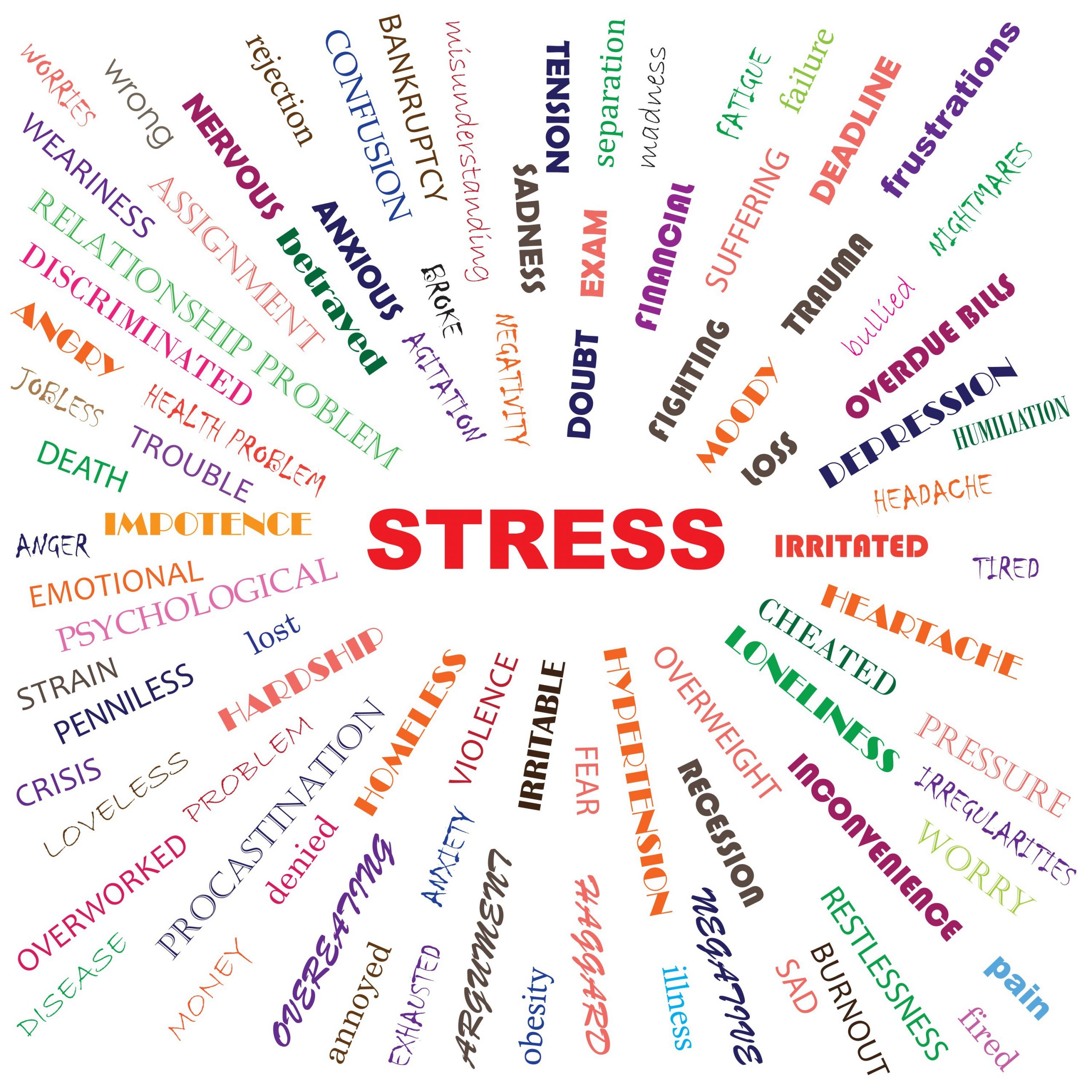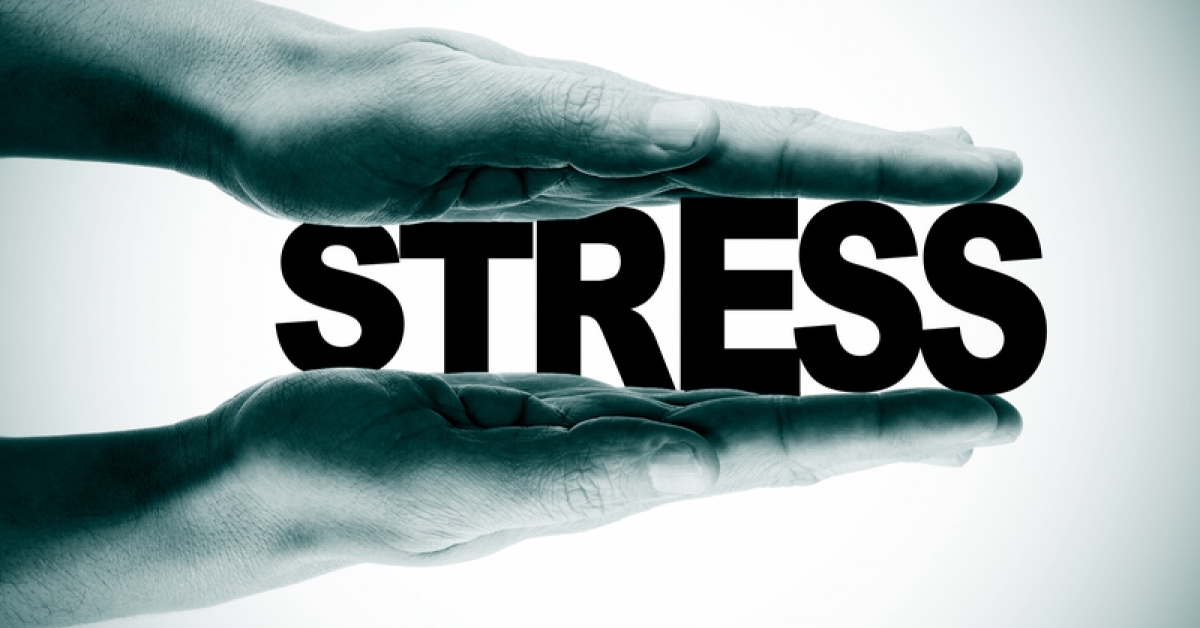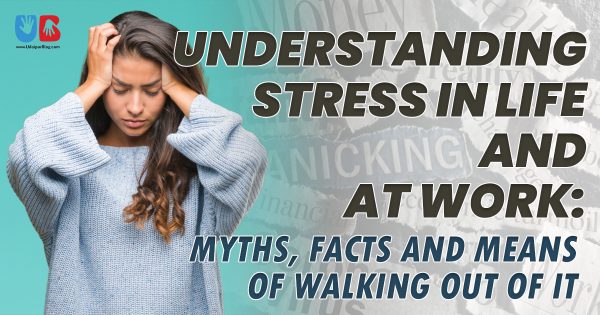Stress And Its Meaning
Stress in the context of organizational psychology has been defined “as a dynamic condition in which an individual is confronted with an opportunity, demand, or resource related to what the individual desires and for which the outcome is perceived to be both uncertain and important.” (Luthans, 2007). An expansion of the last definition brings us to some important questions. What is stress? Is organizational stress different from daily life stress? Can we weave a life for ourselves where we are so-called stress-free? How to know that one is unable to cope with stress? In what ways does stress dampen sexual behaviour and experiences? This article makes an attempt to answer some of these questions.
What exactly is Stress?

To put simply, stress is a condition or unpleasant feeling experienced when a person perceives that the ‘demands’ faced by an individual exceed the personal and social resources that one has to deal with it. During stress, one may feel strained by “physical, mental, or emotional tension” (American institute of stress, 2021). Some amount of stress is known to enable us in moving towards our desirable goal, be it personal or professional. It sort of sets us in a momentum for change and adaptation which is healthy for everyone.
However, stress has a setup point, pretty much like the boiling point of water. Beyond that set point, it leads to clinically significant physiological and psychological outcomes. This set-point varies from person to person. The stress hormones pumping through our body usually encourage us to either fight or flight or freeze to cope with the overload. It depletes one’s healthy emotional reserves and definitely impacts sexual behavior as well. High-stress hormones floating in our body don’t leave much room for closeness with our partners, and slowly but surely, the sexual interest, intimacy, desires and involvement starts to wither away. Another rare manifestation of acute stress in some people may be uncontrollable hypersexuality as a compensatory mechanism to seek relieves stress, coupled with low sexual satisfaction, distress and guilt. Hypersexuality shows up as ‘recurring and uncontrollable sexual fantasies’ and leads to difficulty in establishing and maintaining a relationship with a stable romantic partner because of their preoccupation with sex. It may sometimes also lead to promiscuity and infidelity in relationships. Not only sexual but other social, interpersonal and psychological behaviors may also alter due to stress. So when one is stressed out, it may be hard for a person to deal with anything other than self or the source of stress.
Stressors impacting sexual functioning may be of two kinds:
a) Major life events i.e., death of a loved one, separation, loss of job /bankruptcy etc.
b) Minor daily life events which are in the form of an ‘accumulation of small stressors’ that are constantly or frequently present, such as deadlines that never seem to be met, constant arguments with a partner, financial risks etc.
Researchers opine that it is these ‘daily hassles’, and not ‘major life events, that were more linked to sexual difficulties (Kanner,1981). The negative interaction between chronic stress and sexual functioning may extend to reproductive functioning, fecundability and fertility in both men and women. These factors taken together as a whole may lower the quality of life and sexual and relational satisfaction.
It is a common myth that “stress should be eradicated from our lives, all together”. It’s not so. Stress appears to be a normal aspect and to an extent a healthy and evitable part of one’s life. It can lead to healthy self-growth as well. Learning ways to cope with it i.e., to “modify its magnitude and multi-system effects or become resilient to it” would be more a realistic ideology.
The sources of stress can be numerous. In the organizational context, work stress may be attributed to factors such as Intrinsic job requirements (work pattern, timing, duration, pressure, shift, new challenges), structure (physical space, climate, temperature, discomfort, consistency, transfers), job roles (transitions, conflicts, poor differentiation of roles, ambiguity, unpredictability), growth (lack of opportunities, security, promotions, incentives, recognition, perks), interpersonal relations (with authority, peers, juniors, in teams, communication styles, responsibility allocation/taking, coordination, political, threat, domination) and intrapersonal factors (personality, temperament, belief systems, cognitive style, stereotypes, socio-cultural, developmental etc) (Luthans, 2007). In the latter context, organizational stress may take the form of daily stressors, interacting in complex fashions within a person.
How one responds to stress is an interesting variable. Just like sources of Stress, a person’s response to stress too can be acute or chronic. Acute Stress-induced ‘fight or flight or freeze reactions help to defend and built immediate protective strategies against problems. Our body takes about 90 minutes for the metabolism to return to normal. This is only when the acute response is over. The mind may still keep responding to ‘what happened to me, how and why for much longer periods of time.
Sometimes stress becomes ongoing and evolves into chronic stress. Longstanding uncontrolled stress has the opposite effect. It causes significant wear and tears to several systems such as respiratory, cardiovascular, gastrointestinal, endocrinal, Musculoskeletal, neurological, dermatological, immunological, sexual and reproductive etc. Some of the bio-behavioural outcomes of stress may be persistent or progressive complaints of headaches, fatigability, insomnia, lethargies, worsening of psychosomatic illnesses, irritability, anger, anxiety, depression, loneliness, frustration, emptiness, avoidance, lack of enthusiasm, self-negligence, unworthiness, hopelessness, helplessness, vulnerability, worrying, crying spells, death wishes, recourse into addictive behaviours, digital addictions, interpersonal dissatisfactions, emotional outbursts, sexual dysfunctions and frequent relational disputes.
Stress response at a psychological level keeps evolving as we grow, with both new learning and experiences. It can be easily unlearnt and re-learnt. This means that, once we get aware of our maladaptive behaviours, we can unlearn them and turn towards more adaptive as well as healthy means of coping. A healthy stress response aids in building psychological resilience and physical recovery. It helps the biological capacity to cope with a cascade of acute and chronic stress effects.
Coping Up With Stress

Some of the easy ways of coping with stress could be:
- Firstly, working on personal loopholes, avoidance, minimization, excessive blaming, fantasies and denial of real issues.
- Secondly, set some time aside each day for an unbiased self-reflective practice. The idea for the same becomes identifying one’s agendas, sources, intensity and outcomes of stress and checking effective or ineffective means of dealing with it. One may take help from trustworthy peers, friends, mentors, parents, and spouses, to do the same.
- Third could be building healthy boundaries from stress and preventing oneself from overbooking.
- Another strategy is balancing circadian rhythm disturbances by adopting healthy eating, adequate hygiene, grooming, dressing, nutrition, hydration, a combination of physical exercises, and relaxing and healthy sleep regimens.
Additionally, de-cluttering the mind may help. It involves re-organizing ones living environment to have a clean, fresh, arranged, aerated physical space, journalizing one’s experiences, ditching technology and reducing screen time and substituting it with other joyous activities. At times going minimalistic on self/others’ demands and doing “nothing at all” for a while also can be really helpful. Reconnecting with nature via soothing activities can also have an excellent mood-regulating effect.
Needless to say, if stress-induced symptoms are continuous for two to three weeks and are significant to cause distress or disturbances in one’s interpersonal, intimate life or socio-occupational activities, then this is a red-light situation. It warrants a general medical check-up and psychological evaluation.
In the words of the popular American author and psychotherapist Richard Carlson, “Stress is nothing more than a socially acceptable form of mental illness”. It is probably less stigmatizing and illusionary to disclose oneself as “stressed or worked up” and resort to cures for the same. Any situation/event can be the starting point of a new journey and opportunity. Seizing it can open the path to transformative growth for any individual.
References
1. American institute of stress (2022) Stress research retrieved from https://www.stress.org/stress-research
2. Luthans F, Youssef CM. Emerging positive organizational behaviour. Journal of management. 2007 Jun;33(3):321-49.
3. Kanner AD, Coyne JC, Schaefer C, Lazarus RS. Comparison of two modes of stress measurement: Daily hassles and uplifts versus major life events. J Behav Med. 1981;4:1–39.
Author Profile: Dr Ansha Patel (Bach, Masters, MPhil, PhD Clinical & Reproductive Psychology, Postdoc fellow) is a consultant clinical psychologist, psychotherapist, researcher, scientific advisor and columnist. She is affiliated with the Dept. of Psychiatry and Psychology at RNT medical college, Shantiraj and Paras hospitals, Udaipur, Rajasthan, India. She is pursuing her fellowship at MAHE, FAIMER, Manipal, Karnataka. She specializes in Behavior Medicine, Adult and Women’s Mental Health. She is trained in evidence-based cognitive behavioural therapies and mindfulness-based interventions. She is also a scientific advisor to Vyana sparcolife digital fertility solutions and a peer-reviewer for indexed scientific journals published by Springler Nature, Elsevier, Wolter Kluwer, Taylor Francis and Sage groups. She is a freelancing columnist for Reproductive health club magazine & TARSHI. Profile: https://orcid.org/0000-0002-1766-9558, https://www.linkedin.com/in/dr-ansha-patel-49b123214/, https://www.instagram.com/dransha_patel/.

